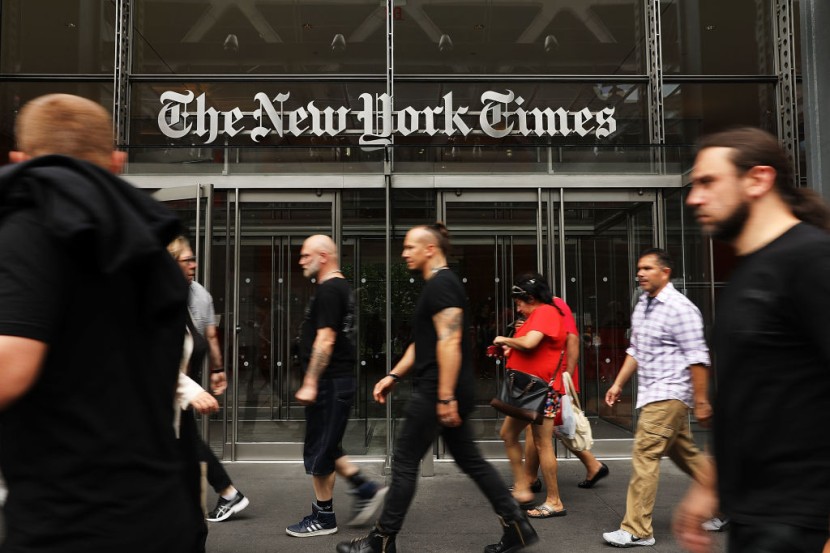The New York Times took legal action against OpenAI and Microsoft on Wednesday, December 27, launching another chapter in the ongoing legal dispute around the unlawful usage of published works to train artificial intelligence (AI) systems.
It is the first time that a major American newsgroup has sued the companies that made ChatGPT and other famous AI platforms for copyright violations related to its written works.

Illegal Copying, Usage of Works
The case, which was filed in Manhattan's Federal District Court, claims that automated chatbots, trained using millions of stories from The New York Times, now pose a threat to the news outlet's credibility.
There is no specific amount sought in the lawsuit. However, it states that the defendants need to pay "billions of dollars in statutory and actual damages" connected to the illegal duplication and utilization of The New York Times' materials.
The corporations are also requested to delete any chatbot models or training data that include infringing content from the media company.
This case has the potential to have far-reaching consequences for the news business while also testing the limits of what is known as generative AI technologies. These systems can produce material such as text, photos, and videos by learning from massive amounts of data.
According to The New York Times, while a few media have found success with online journalism, the loss of readers to the internet has crippled hundreds of other publications.
Meanwhile, AI software companies like OpenAI are raking in billions of dollars in investment. These companies train chatbots using a vast array of internet materials, including newspaper articles, poetry, scripts, and more.
The lawsuit claims that the defendants want to take advantage of The New York Times' huge investment in its news by using its material without paying for it to make products that compete with the newspaper and take readers away from it.
AI's Exploitation Concerns
The creative industries are understandably worried about AI systems' potential to exploit intellectual property without adequate compensation. This is because AI systems can now produce complex written replies to almost any given trigger, much like humans.
Meta and OpenAI were accused in July by actress Sarah Silverman of using her book as a training material for their AI algorithms, according to two cases she was a part of. Authors like John Grisham and George RR Martin were among those who took to the courts after learning that AI systems had gone through thousands of books.
Also, the photographic syndicate Getty Images has taken legal action against an AI platform, Stable Diffusion, that creates pictures in response to textual instructions, claiming that the service depends on the unlawful use of Getty's copyrighted visual assets.
© 2026 HNGN, All rights reserved. Do not reproduce without permission.








